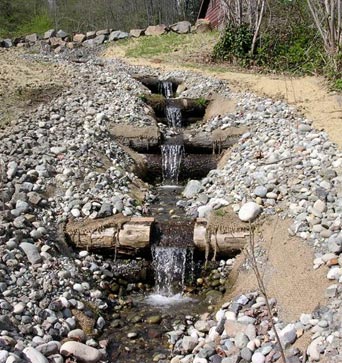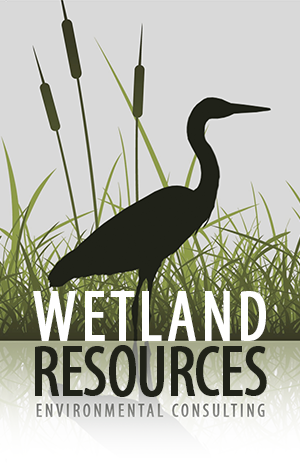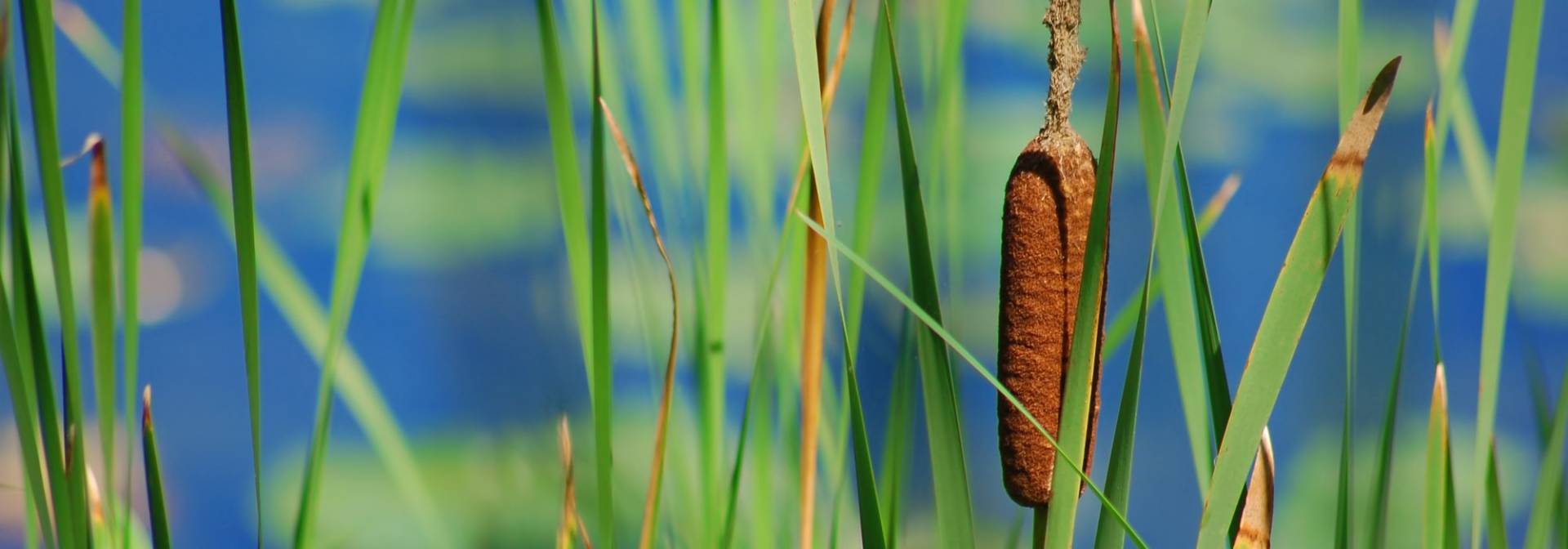Key Personnel: Scott Brainard | John Laufenberg
Since 1989, Wetland Resources has served western Washington, establishing itself as a quality, comprehensive consulting firm known for providing honest, timely advice for projects that involve critical areas, fish, and wildlife. Tantamount to our success is our ability to create long-standing relationships with land-owners, government agencies, engineers, attorneys, developers, and land managers by working diligently to ensure that the best interests of all parties are met.

Our staff provides accurate advice and technical documentation with efficiencies of experience to complete projects on time and within established budgets. While we provide a full range of environmental services, some of our more popular services include:
- Reconnaissance and feasibility studies
- Wetland and ordinary high watermark delineation
- Critical area studies
- Wetland, stream and buffer mitigation and enhancement projects
- Wetland, stream and riparian habitat creation and restoration
- Fish and wildlife studies
- Biological analysis and evaluation
- Project management and permit acquisition
Our firm is largely founded in the identification, delineation, restoration, and creation of wetlands and streams. Our knowledgeable staff is also equipped to address any environmental challenges that may arise during the course of a project. Backed by a team of experienced professionals, including ecologists, fisheries biologists, marine biologists, wildlife scientists, and soil scientists, our consulting group is prepared to help land management and development interests, both public and private, meet their goals while averting conflict with regional and federal agencies.
Wetland Resources has a firm understanding of the requirements set forth by local, state and federal permitting authorities. As your partner, we can provide you with the necessary course of action to avoid or reduce any adverse impacts to protected species and/or the environment. Whether is a Critical Area Study, Mitigation Plan, Habitat Management Plan, or Biological Evaluation, we take pride in tailoring strategies that will be the most beneficial to you.
Scott Brainard
Principal Ecologist | CEO | PWS
Education
B.S., Environmental Policy and
Impact Assessment,
Western Washington University, 1993
Certifications
Certified Professional Wetland Scientist – # 1743
Advanced Training
- Plant Identification, EvCC
- Land Use Development and Planning, EvCC
- Wetland Delineation Training, Wetland Training Institute
- Nationwide Permits, Wetland Training Institute
- USACE Northwest Regional Nationwide Permits, USACE
- Advanced Hydric Soils, SPU
- Management of Invasive Plants, PSU
- Classifying Wetlands Using HGM, PSU
- Wetlands and Upland Restoration, UW
- Geology and Geomorphology of Streams, UW
- Electrofishing Training Course, USDFW & Smith Root, Inc.
- How to Determine Ordinary High Water Mark, WA DOE
- WA State Wetland Rating System for Western Washington, WA DOE
- Arid West Supplement Delineation Manual, Wetland Training Institute
- WA State Wetland Rating System for Eastern Washington, WA DOE
Scott holds a Bachelors degree in Environmental Policy and Impact Assessment from Huxley College, Western Washington University, and is a Certified Professional Wetland Scientist and an active member of the Society of Wetland Scientists. Scott’s fourteen years of experience working with the private and public sectors make him particularly sensitive to the needs of utility purveyors, the development community, homeowners, and local jurisdictions. Scott’s training, skills, and strong working relationships with clients and regulators proves invaluable in permit acquisition and compliance on the local, state, and federal level. Scott’s primary responsibilities include project management, wetland reconnaissance/feasibility, permit coordination, delineation, construction supervision, mitigation planning, wetland creation and construction design, ecological and aquatic resource monitoring, and technical report writing.
Wetland and Stream Identification, Delineation and Evaluation
- Feasibility Studies and Wetland Reconnaissance
- Wetland Delineation utilizing the USACE 1987 Wetland Identification and Delineation Manual, the 1997 Washington State Department of Ecology Wetland Identification and Delineation Manual, and the USACE Interim Regional Supplement for Western Mountains, Valley, and Coast Region
- Wetland Rating and Categorization utilizing Washington State Department of Ecology Rating System and individual local jurisdictional rating systems
- Functions and values analyses utilizing the multiple methodologies available for Washington State
Mitigation Planning and Design
- Development of wetland, buffer, and stream mitigation plans for compliance with local, state and federal regulations
- Planning and design includes establishing goals, objectives, performance standards and monitoring protocols
- Projects are often evaluated through construction supervision and performance monitoring period
Ecological and Aquatic Resource Monitoring
- Monitoring of existing conditions as well as post-action objectives
- Braun-Blanquet or similar methods to the protocols described by the Salmon Recovery Funding Board (SRFB), April 2004
- Effective use of established methodologies for defendable results
John Laufenberg
Principal Ecologist | President | PWS
Education
B.A., Environment,
University of Washington, 1994
Certifications
Certified Professional Wetland Scientist – # 1742
Advanced Training
- Plant Identification, EvCC
- Wetland Delineation Training, Wetland Training Institute
- Advanced Hydric Soils, PSU
- Management of Invasive Aquatic Plants, PSU
- Classifying Wetlands Using HGM, PSU
- Wetland Mapping with GPS, Global Mapping Technology
- Wetlands and Upland Restoration, UW
- Watershed Keeper Training, Snohomish County Surface Water Management
- Geology and Geomorphology of Streams, UW
- Electrofishing Training Course, USDFW & Smith Root, Inc.
- WA State Wetland Rating System for Western Washington, WA DOE
John holds a Bachelors degree in the Environment from the University of Washington and is a certified Professional Wetland Scientist and active member of the Society of Wetland Scientists. In his 19th year with Wetland Resources, John’s primary responsibilities include project and staff management, mitigation and restoration design, wetland reconnaissance, feasibility studies, and permit coordination. Other responsibilities include delineation, habitat monitoring, technical report writing, and construction supervision. His education has concentrated on ecology, growth management, and natural resource economics with a strong background in engineering and computer aided design. Ongoing professional development has included wetland delineation and advanced hydric soils from the Wetland Training Institute, hydrophytic botany, and Snohomish County watershed management. John’s technical training and applied experience are valuable tools for landowners and developers alike, bridging the gap between land use ideas and agency permits.
Wetland and Stream Identification, Delineation and Evaluation
- Feasibility Studies and Wetland Reconnaissance
- Wetland Delineation utilizing the USACE 1987 Wetland Identification and Delineation Manual, the 1997 Washington State Department of Ecology Wetland Identification and Delineation Manual, and the USACE Interim Regional Supplement for Western Mountains, Valley, and Coast Region
- Wetland Rating and Categorization utilizing Washington State Department of Ecology Rating System and individual local jurisdictional rating systems
- Functions and values analyses utilizing the multiple methodologies available for Washington State
Mitigation Planning and Design
- Development of wetland, buffer, and stream mitigation plans for compliance with local, state and federal regulations
- Planning and design includes establishing goals, objectives, performance standards and monitoring protocols
- Projects are often evaluated through construction supervision and performance monitoring period
Ecological and Aquatic Resource Monitoring
- Monitoring of existing conditions as well as post-action objectives
- Braun-Blanquet or similar methods to the protocols described by the Salmon Recovery Funding Board (SRFB), April 2004
- Effective use of established methodologies for defendable results

